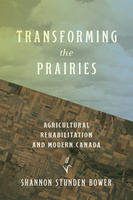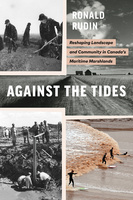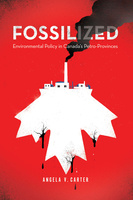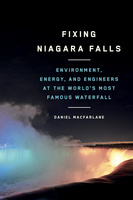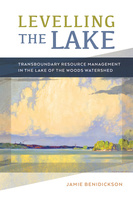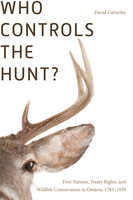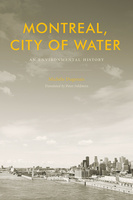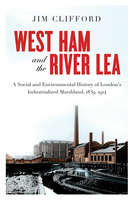Nature | History | Society

Series editor: Graeme Wynn
Nature | History | Society is a series devoted to the publication of high-quality scholarship in environmental history and allied fields. Its broad compass is signaled by its title: "Nature" because it takes the natural world seriously; "History" because it aims to foster work that has temporal depth; and "Society" because its essential concern is with the interface between nature and society. The series is avowedly interdisciplinary and features the work of anthropologists, ecologists, historians, geographers, literary scholars, political scientists, sociologists, and others whose interests resonate with its mandate. It offers a timely outlet for lively, innovative, and well-written work on the interactions of people and nature through time in North America.
Transforming the Prairies
Agricultural Rehabilitation and Modern Canada
Transforming the Prairies critically reassesses Canada’s Prairie Farm Rehabilitation Administration in light of its involvement in ecological changes and its role in consolidating colonialism and racism.
Making Muskoka
Tourism, Rural Identity, and Sustainability, 1870–1920
Making Muskoka traces the first decades of Muskoka’s transformation from Indigenous homeland to a part-time playground for tourists and cottagers and uncovers the consequences for those who lived there year-round.
Against the Tides
Reshaping Landscape and Community in Canada’s Maritime Marshlands
Against the Tides tells the compelling story of the rehabilitation of the Maritime marshlands, a project that reshaped not only the landscape of the Bay of Fundy region but the communities that depended on it.
The Government of Natural Resources
Science, Territory, and State Power in Quebec, 1867–1939
The Government of Natural Resources is a revealing look at how science can extend state power through territorial and environmental transformations.
Fossilized
Environmental Policy in Canada's Petro-Provinces
Fossilized reveals how Alberta, Saskatchewan, and Newfoundland and Labrador – blinded by exceptional economic growth from 2005 to 2015 – undermined environmental policies to intensify ecologically detrimental extreme oil extraction.
Fixing Niagara Falls
Environment, Energy, and Engineers at the World’s Most Famous Waterfall
Long considered a natural wonder, the world’s most famous waterfall is anything but. Fixing Niagara Falls reveals the engineering and politics behind the transformation of Niagara Falls.
Levelling the Lake
Transboundary Resource Management in the Lake of the Woods Watershed
It’s one thing to live in a watershed. We all do. It’s another to manage one, as Levelling the Lake compellingly demonstrates.
Who Controls the Hunt?
First Nations, Treaty Rights, and Wildlife Conservation in Ontario, 1783-1939
Tracing the connections between colonialism and the early conservation movement in Ontario, Who Controls the Hunt? examines the contentious issue of treaty hunting rights and the impact of conservation laws on First Nations.
Montreal, City of Water
An Environmental History
Montreal, City of Water investigates the development of the city over two centuries, tracing the relationship between the city’s inhabitants and the waterways that ring its island and flow beneath it in underground networks.
West Ham and the River Lea
A Social and Environmental History of London’s Industrialized Marshland, 1839–1914
This original account of industrial London’s expansion into West Ham’s suburban marshlands highlights how pollution, poverty, and water shortages fuelled social democracy in Greater London.

